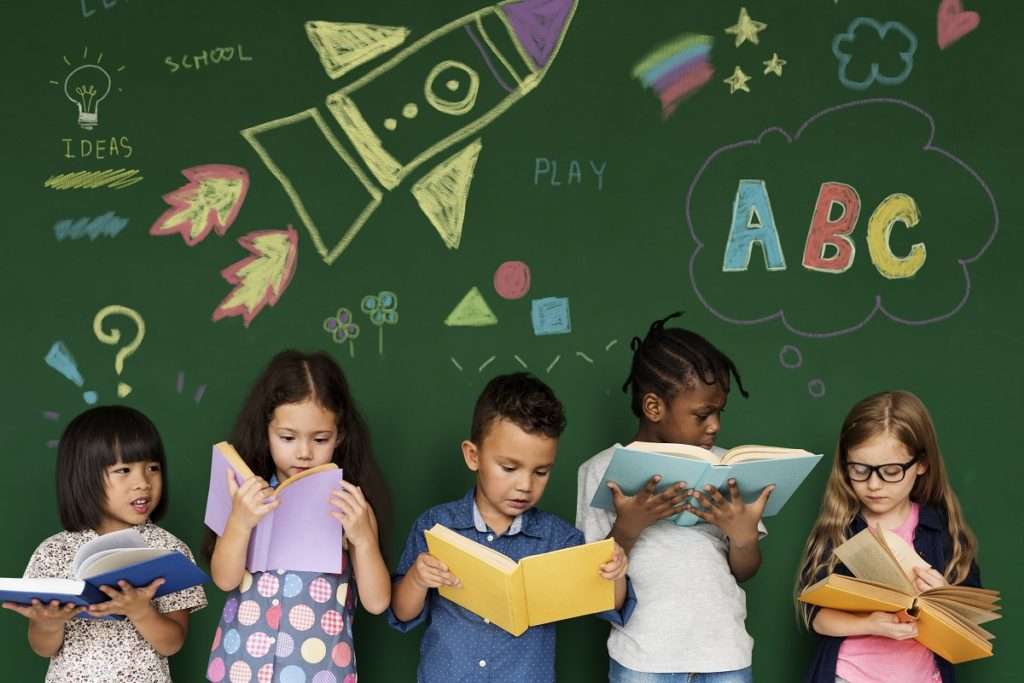How to improve child reading skills?
Reading is the gateway to endless possibilities, adventures, and knowledge. One of the most beautiful gifts parents can bestow upon their children is the love for books and the skill to read proficiently.
Did you know that children who master reading by the end of third grade are more likely to succeed academically and graduate from both high school and college?
Reading doesn’t only offer an academic edge; it enriches a child’s vocabulary, enhances comprehension, and sharpens writing skills.
This post is designed to guide parents on this transformative journey.
Key Strategies for Helping Your Child Become a Better Reader
A. Read Aloud to Your Child Every Day
Reading aloud is like opening a window to the vast world of literature for your child. It exposes them to new words, different sentence structures, and various tones of voice. As you read, they learn how words come together to form narratives.
This daily ritual aids in enhancing their listening skills, enriching vocabulary, and cultivating an early love for stories.
Encouraging a Love for Reading in Children: Nurturing Lifelong Learners
Moreover, hearing stories fosters creativity and imagination. When parents use expressive voices for different characters or emphasize dramatic parts, it demonstrates the rhythm and emotion behind words.
B. Help Your Child Learn the Alphabet and Letter Sounds
Before diving into words, children need to understand the basic building blocks: letters and the sounds they represent. Recognizing letters is the first step, but phonics – the sounds letters make – is the bridge between recognizing words and understanding them.
Engage in activities that let them trace letters, sing the alphabet song, or play letter recognition games. Phonics-focused games and songs can make this learning process interactive and enjoyable.
The earlier a child grasps the link between letters and sounds, the easier the reading journey becomes.
C. Teach Your Child Sight Words
Sight words, often referred to as high-frequency words, are words that appear frequently in our language but aren’t always phonetically regular.
Examples include “the,” “and,” and “said.” These words sometimes don’t follow standard decoding rules, so recognizing them on sight can accelerate reading fluency. Flashcards, wall charts, or sight word apps are useful tools.
The goal is for children to recognize these words instantly without having to sound them out.
D. Play Games and Activities that Focus on Reading
Turn reading into an entertaining activity! There are countless games – both digital and physical – that revolve around word recognition, phonics, and vocabulary building.
For instance, a simple game of ‘I spy’ using letter sounds or word bingo can be both fun and educational. Board games like Scrabble Junior can also familiarize them with words.
Puzzles, word searches, and crosswords cater to various age groups and reading levels, ensuring that learning remains fun.
E. Encourage Your Child to Read Independently
As your child’s reading skills progress, give them opportunities to explore books on their own.
This self-directed reading boosts confidence, enhances comprehension, and fosters a sense of achievement. It’s crucial to ensure the reading material matches their level – not too easy to bore them and not too challenging to frustrate them.
Creating a cozy reading corner or a mini-library at home can make independent reading sessions more inviting.
Kid-Friendly DIY Crafts That Are Actually Easy
F. Make Reading Fun!
At the heart of it all, reading should be a joyous experience. Choose books with vibrant illustrations, exciting stories, or interactive elements like flaps and textures.
Weekly trips to the library, themed book nights, or even setting up a reading tent in the living room can make reading feel like an adventure.
Celebrate milestones, be it finishing a new book or recognizing a challenging word. When children associate reading with fun, they’re more likely to continue the habit independently.
Conclusion
Helping your child become an adept reader is a journey filled with tales, adventures, and milestones. Not only does reading set them on a path of academic success, but it also unlocks realms of imagination and knowledge.
As you embark on this rewarding voyage, consider engaging tools like reading buddies or library memberships to further enrich the experience.
Remember, every story you read brings your child one step closer to a world where they can read any story they choose.


